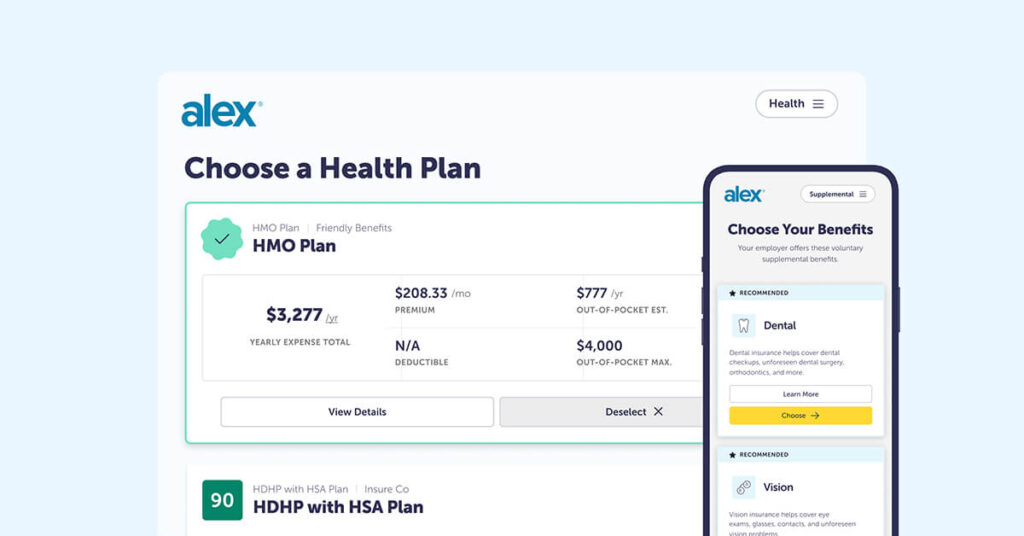Human resources professionals pride themselves on being the person that employees can come to in a pinch, whether they have a problem with a coworker or personal matters to manage. In their view, employees can trust their HR teams to help them address the situation in confidence and privacy.
Unfortunately, employees don’t exactly feel the same way. While surveys show that the majority of employees trust their HR departments, a sizable minority do not. They’re afraid to bring up complaints, they think management gets favorable treatment, and they don’t understand the communication they receive from HR. This contributes to poor performance and increased attrition – and it also leads employees to dismiss important messages from HR, such as changes to benefits, which are intended to make it better to work for the company.
Every company wants to improve trust. While some of the strategies for accomplishing this admittedly require large-scale executive initiatives, HR teams can help by giving employees the tools they need to get the most from their workplace. That will get your employees to say, “Hey, HR does have my back!”
Why employees don’t trust HR
Data from several sobering surveys tells us why employees don’t trust their HR departments:
More than 30% of employees avoid going to HR with their problems, whether it’s because the issues are minor, they don’t trust HR to help, or they fear retaliation for speaking up. Another 38% say it seems like HR didn’t equally enforce company policy, by doing things such as giving managers special treatment. In some ways, these apprehensions are warranted, as most HR professionals report that less than 30% of the complaints they receive result in disciplinary action.
Less than half of employees trust HR to help them manage conflict with another employee or act impartially in a conflict between a junior and a senior staff member. (The percentage is even lower in the technology industry – only 26% of tech workers trust their HR department.) Less than half of employees also don’t expect to get help from HR in another key area: Learning about internal promotion opportunities.
2 in 5 employees don’t understand the communications they receive from HR, largely because it’s in the jargon that only HR understands. Poor communication can cause a lack of trust: While 45% of employees have “quite a bit” and “a lot” of trust in their employers, 26% have “very little trust” or “no trust at all,” and the majority are skeptical about sharing personal health information with their employers in order to be connected with better health care options.
Take your benefits communications to the next level.
How lack of trust impacts the way employees use their benefits
That last point is an interesting one. When employees don’t trust HR, they don’t fully engage with their benefits. Sharing health information can be incredibly personal, and not always comfortable to share with a coworker (even with the promise of confidentiality).
But there’s an added layer to the problem. Not only are employees hesitant to share personal benefits questions with HR—but they’re not finding the answers they need on their own, either:
These employees aren’t taking an active role in decision-making about their own benefits. They choose the wrong health plan for their needs (nearly 1 in 4 don’t do any research before picking a plan). They underfund their health savings accounts. They don’t know about the mental health benefits available to them.
Imagine you’re one of these employees. You opted for the high-deductible health plan, like you do every year, only you forgot that starting a family means going to the doctor a lot. You confused your HSA with an FSA, not realizing that your savings roll over every year and can be invested to make even more money. You didn’t know where to turn when you were feeling burned out, not realizing that you could speak to someone using your company’s new mental health benefit.
When you learn these things after the fact – after you’ve spent thousands on doctor visits, missed the chance to save thousands of pre-tax dollars, or failed to lower your stress – are you going to trust HR more? Or less?
How better communication builds back trust
Trust matters. Research on the neuroscience of trust published in Harvard Business Review concluded that employees at companies with a high level of trust are better engaged, less stressed, more energetic, and more productive than employees at companies where there’s a low level of trust. And the annual Trust Outlook report from the Trust Edge Leadership Institute has found that employees in a high-trust work environment are more likely to share their ideas – and even work longer hours – if they trust their leaders.
Companies can build back trust, but be warned: It may take some work. At a corporate level, you allow for respectful dialog and debate, as this encourages open discussions and decision-making. You keep promises and speak truthfully – even if the news isn’t good. You show a little bit of gratitude, privately and publicly (when appropriate) highlighting a job well done.
And if you ask us, you focus on improving benefits communication. Because we still have some work to do:
Meet ALEX
One way to address these unmet needs is to bring in an unbiased, third-party resource to help employees make their benefits decisions. This way, employees don’t have to have a conversation about their money or their health with someone they may or may not completely trust. These resources, such as the ALEX Benefits Counselor, establish trust in four important ways:

ALEX cuts through the confusion to help employees overcome their typical decision-making biases. Instead of forcing employees to rely on anecdotal evidence from their coworkers or information skimmed over in a presentation last month, ALEX puts healthcare costs in context, gives employees a side-by-side of their benefits options, and points out the best bang for your buck.
ALEX is built on behavioral science principles. It can be hard to make decisions about money – especially if putting more money into an HSA or 401(k) means seeing less in every paycheck. ALEX uses behavioral science to help employees overcome those hesitancies and make smarter choices.
ALEX is engaging. Gone are the days of forcing folks to leaf through a printed benefits booklet when all they really want to know is if there’s a way to spend less on prescriptions or if urgent care visits are covered. ALEX meets employees in moments that matter, when they are actively engaged with their benefits, rather than expecting them to seek the information on their own.
ALEX is available 24/7. That lets employees access resources when they need them most. They don’t have to wait for normal business hours – and then hope the door to the HR office isn’t closed, or their HR rep’s Slack status isn’t Busy, when they have a pressing question.
Getting employees to talk about health and money can be challenging, especially if they don’t trust their HR teams with this information. But without this conversation, they may not get the coverage they need, and they may leave money on the table. Using a tool such as ALEX can guide employees to the right benefits decisions on their own – and it can show those employees who may not be trusting that the HR team is actually looking out for them.


